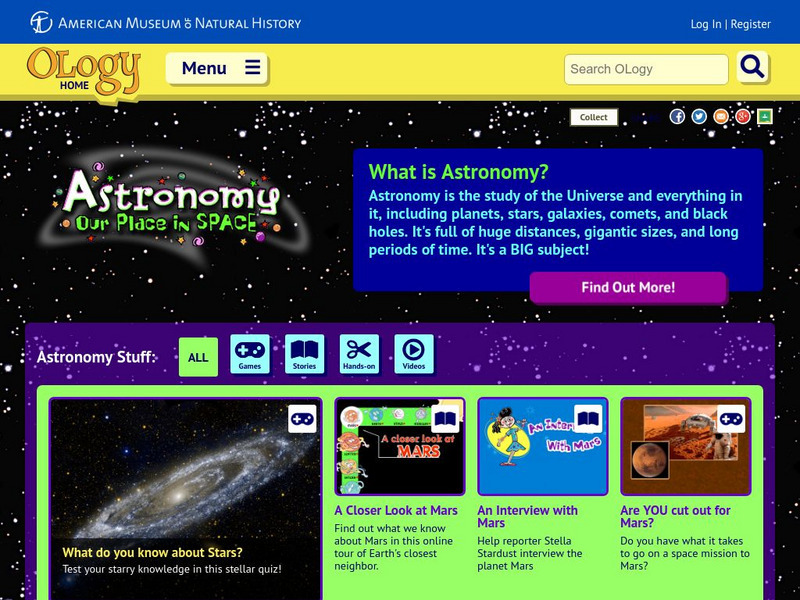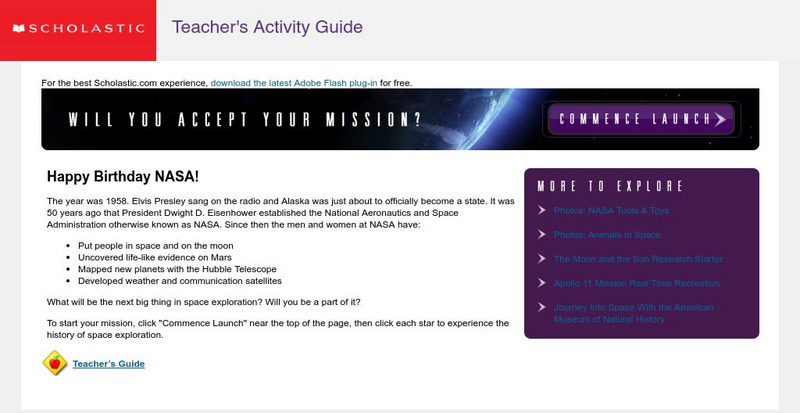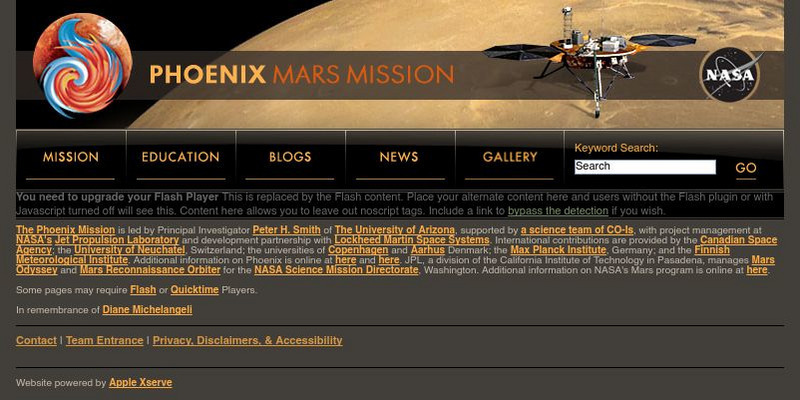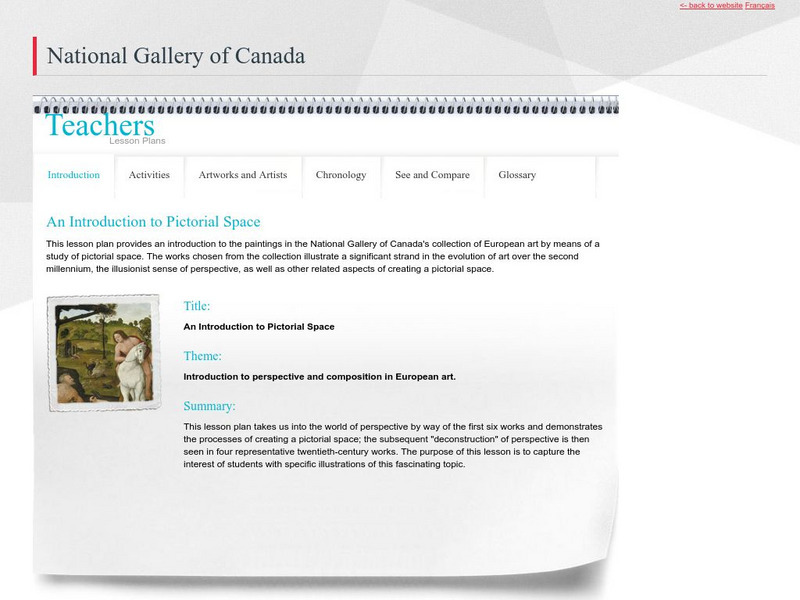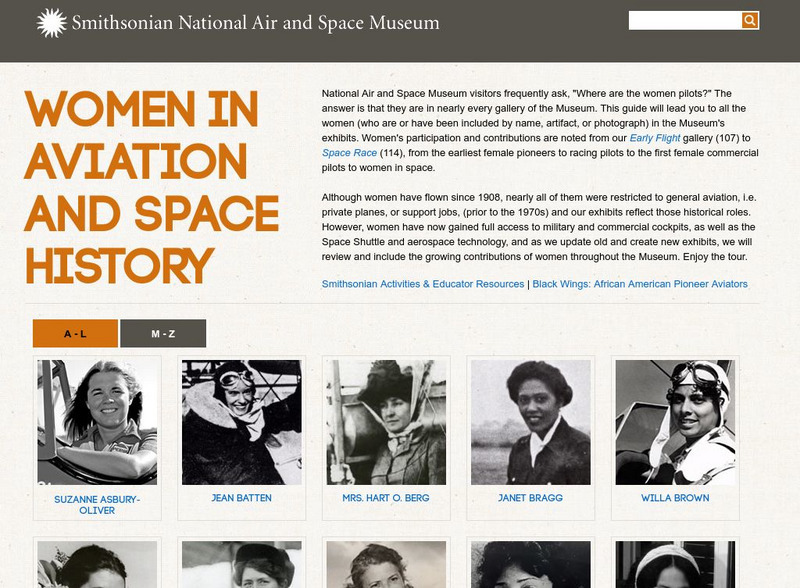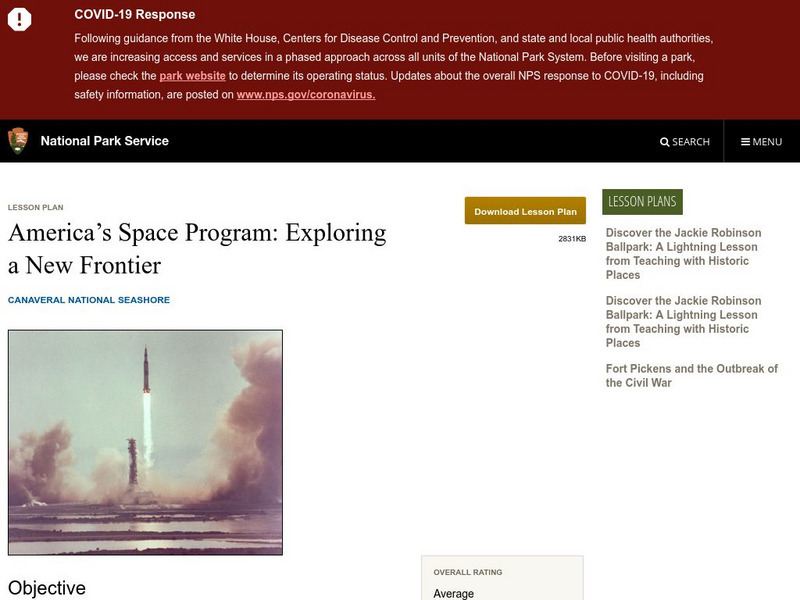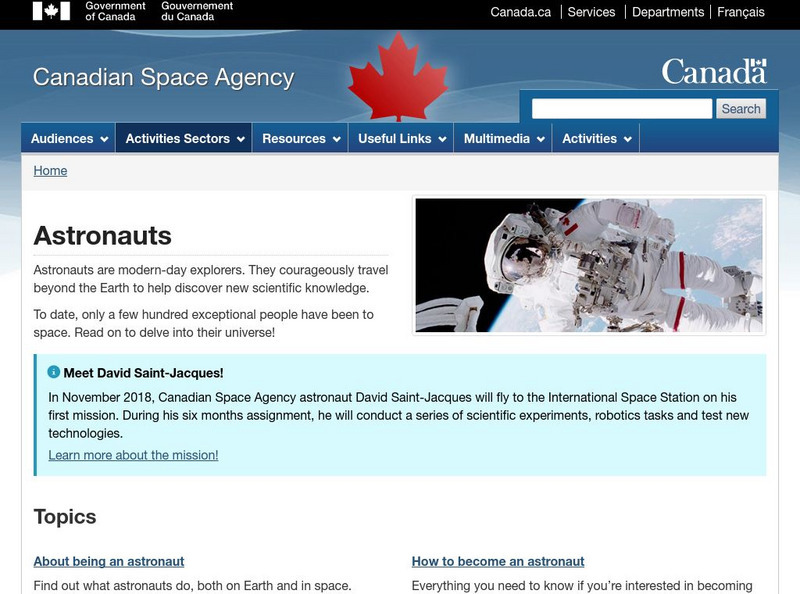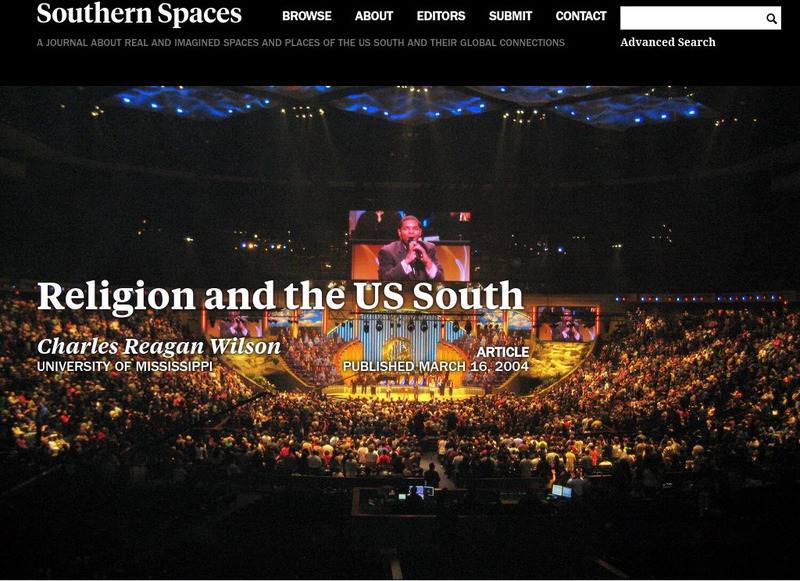Hi, what do you want to do?
American Museum of Natural History
American Museum of Natural History: O Logy: Astronomy: Our Place in Space
This resource is a place for learning all about astronomy--stargazing, planets, space science, and interesting astronomical phenomena and discoveries. Explore, ask questions, find information, and meet American Museum of Natural History...
US National Archives
Nara: Space Exploration
A comprehensive timeline of the world's programs exploring space since the mid-1900's.
Scholastic
Scholastic: Challenging the Space Frontier
This Scholastic website offers information about space exploration. Use this site to learn about specific missions like the Friendship, Apollo 11, and STS 7. Also Dr. Mae Jemison is featured and interviewed.
NASA
Nasa: History Timelines
This site from NASA contains a directory of timelines related to NASA exploration and history. A valuable resource.
University of Arizona
Nasa: The History of Mars Exploration
Explore the time line from 1960 to the 2000s about Mars Missions. Choose from news, explorations, blogs, gallery, and missions to learn more about Mars exploration.
National Gallery of Canada
Cybermuse: Introduction to Pictorial Space
A site featuring the work of Cezanne, Monet, Picasso, and Mondrian, among others, that explores pictorial space in a composition There are lesson plans for ages 4-18, and a great section where works are juxtaposed for comparison. Use the...
NASA
Nasa: Solar System Exploration: The Robotic Exploration of Space
Discover the evolution of robotic exploration of space during the first half of the twentieth century through narrative and images.
Smithsonian Institution
National Air and Space Museum: Women in Aviation and Space History
Find information on the many women who became well known for their part in aviation history. Click on one of the drop down menus on the left to find a name, then click on the name to see a short description of the woman and her...
Other
British National Space Centre: Space Exploration
A resource on space exploration offering information on unmanned and manned missions as well as on each planet of the solar system and what we have learned about them in recent history.
Space Telescope Science Institute
Amazing Space: No Escape: The Truth About Black Holes
This site is for teachers or anyone interested in detailed information on black holes. Lesson plans are included as well as a grab bag of web images. Students have a chance to write and submit a paper on black holes and to explore the...
Curated OER
National Park Service: America's Space Program Exploring a New Frontier
This site includes a lesson for teachers to use when teaching about America's space program. Also included is the history of the space program, maps, readings, images of the space program, and benefits that resulted from space research.
NASA
Nasa Space Science Data Archive: Clementine Mission
Contains the official record of the Clementine mission's survey of the moon, with links to more detailed information about the spacecraft and its mission. Includes images of the mission and planets.
Government of Canada
Canadian Space Agency: Astronaut Life
This comprehensive site provides biographies of Canadian astronauts and describes their training process, missions and history. It also explores what it is like to live in space. There is even information about how to invite an astronaut...
Library of Virginia
Virginia Memory: Blank Space: Mapping the Unknown
How did early maps show the mapmakers' perception of the known world? Early mapmakers used maps drawn from coastal explorations, land travels, and even information heard word of mouth from American Indians or from colonists or traders....
Other
Southern Spaces: Overview: Religion and the Us South
This article explores the role of religion in forging the character of Southerners. It looks at different time periods, starting prior to 1830 and on up to 2000, and the many different historical events history that shaped religion in...
NASA
Dawn Mission: Dawn Classrooms: The History and Discovery of Asteroids
Student groups explore scientific breakthroughs and the development of technologies that eventually led to asteroid discovery aboard the Dawn space mission. Learning module components include jigsaw reading, model building, math...
Smithsonian Institution
National Air and Space Museum: Wright Brothers: Embracing the Impossible [Pdf]
For this lesson, learners explore primary resources to see what people who lived in the early age of flight felt about this innovation. They then compare that response to that towards an invention of today.
Smithsonian Institution
National Air and Space Museum: Exploring the Planets: Ancient Times & the Greeks
In ancient times only five planets were known: Mercury, Venus, Mars, Jupiter, and Saturn. Learn about Greek astronomer Ptolemy's theory for the solar system that was to survive for fourteen centuries.
Smithsonian Institution
National Air and Space Museum: Explore the Universe
This resource explores the history of the universe and its explorers.
American Museum of Natural History
American Museum of Natural History: Ology: Astronomy: In Pictures: Beyond Planet Earth
What would it be like to travel across the solar system and explore space? Take a look at some of the places that humans might go to someday, and the questions that scientists are asking.
NASA
Nasa History Division
Learn about the history of NASA and what scientists have discovered about the Earth and space through NASA's explorations.
American Museum of Natural History
American Museum of Natural History: O Logy: Stuff to Do: Space Travel Guide
What makes science fiction so exciting? Read some examples of the genre and then create your own science fiction story about space travel. Use the supplied "travel guide" to generate ideas and structure your plot.
Space Telescope Science Institute
Amazing Space: Star Light, Star Bright
An online exploration where students learn the basics about light and the properties of waves and the electromagnetic spectrum. Students will also learn how to measure wavelength and frequency so they can understand the electromagnetic...
Space Telescope Science Institute
Amazing Space: Galaxy Hunter
Journey to the wildest regions of space, and wrestle with cosmic giants, galaxies. Explore the Hubble Deep Fields from a statistical point of view.





